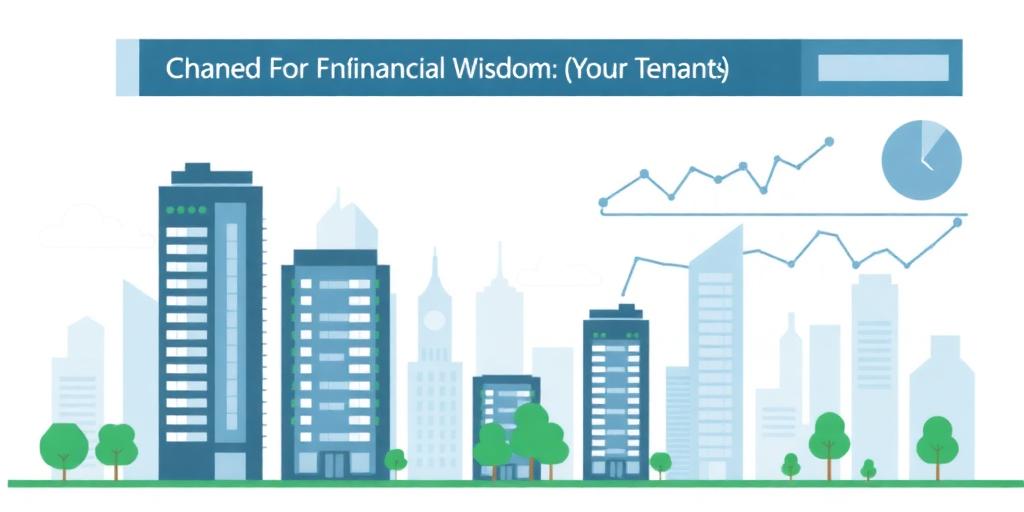Renting Smart: Financial Tips for Tenants
Renting can be a financially demanding part of life, especially in today's economy. Whether you're a student, a young professional, or someone who prefers the flexibility of renting, understanding how to manage your finances effectively is crucial. This guide provides authoritative tips to help tenants make informed financial decisions and optimize their renting experience.
1. Setting a Realistic Budget
Before you even begin your apartment search, it's essential to establish a detailed budget. Start by calculating your monthly income and expenses to determine how much you can realistically afford on rent. Financial experts often recommend that rent should not exceed 30% of your gross monthly income. Here's how to create an effective budget:
- Calculate Your Income: Include all sources of income, such as salary, side hustles, and investments.
- Track Your Expenses: Monitor your spending for at least a month to identify where your money goes. Use budgeting apps or spreadsheets to categorize your expenses.
- Prioritize Needs vs. Wants: Distinguish between essential expenses (housing, food, transportation) and discretionary spending (entertainment, dining out). Reduce unnecessary spending to free up more funds for housing costs.
2. Understanding All Costs Involved
Rent is just one part of the equation. Tenants should be aware of all potential costs associated with renting to avoid financial surprises. Common expenses include:
- Security Deposit: Typically equal to one or two months' rent, this is refundable at the end of the lease, provided there is no damage to the property.
- Application Fees: Non-refundable fees to cover the cost of background checks and credit reports.
- First Month's Rent: Required upfront before moving in.
- Utilities: Costs for electricity, water, gas, internet, and trash removal can vary depending on location and usage.
- Renter's Insurance: Protects your personal belongings from theft, fire, or other covered perils. It's typically affordable and highly recommended.
- Parking Fees: If the rental unit doesn't include free parking, factor in the monthly cost of parking permits or garage fees.
3. Negotiating Lease Terms
Many tenants don't realize that lease terms are often negotiable. Before signing a lease, review it carefully and consider these negotiation strategies:
- Rent Price: Research comparable rental prices in the area to determine if the asking rent is reasonable. Negotiate a lower price if the unit is overpriced.
- Lease Length: Shorter lease terms (e.g., six months) provide more flexibility but may come with higher monthly rent. Longer lease terms (e.g., 18 months) can offer more stability and potentially lower rent.
- Pet Policies: If you have pets, discuss pet fees and restrictions with the landlord. Some landlords may be willing to waive or reduce pet fees.
- Maintenance Responsibilities: Clarify who is responsible for maintenance and repairs. Negotiate terms that assign responsibilities fairly.
4. Building and Protecting Your Credit
Your credit score plays a significant role in your ability to rent an apartment. Landlords often check credit reports to assess your financial responsibility. Here's how to build and protect your credit as a tenant:
- Pay Rent On Time: Late rent payments can negatively impact your credit score. Set up automatic payments to ensure timely rent payments.
- Avoid Evictions: Evictions can severely damage your credit. Communicate with your landlord if you're struggling to pay rent to explore possible solutions.
- Review Your Credit Report: Check your credit report regularly for errors or fraudulent activity. Dispute any inaccuracies with the credit bureaus.
- Consider Rent Reporting Services: Some services report your rent payments to credit bureaus, helping you build credit history.
5. Maximizing Savings and Investments
Renting doesn't mean you can't save and invest for the future. Implement these strategies to maximize your savings:
- Create a Savings Goal: Set specific, measurable, achievable, relevant, and time-bound (SMART) goals for your savings.
- Automate Your Savings: Set up automatic transfers from your checking account to a savings or investment account.
- Take Advantage of Employer Benefits: Participate in employer-sponsored retirement plans and take advantage of matching contributions.
- Explore Investment Options: Consider investing in stocks, bonds, or real estate investment trusts (REITs) to grow your wealth over time.
Conclusion
Renting smart involves careful financial planning, a clear understanding of costs, and proactive management of your credit and savings. By following these authoritative tips, tenants can navigate the renting process with confidence and secure their financial future. Staying informed and making smart financial decisions will enable you to enjoy a comfortable renting experience while building a strong financial foundation.









